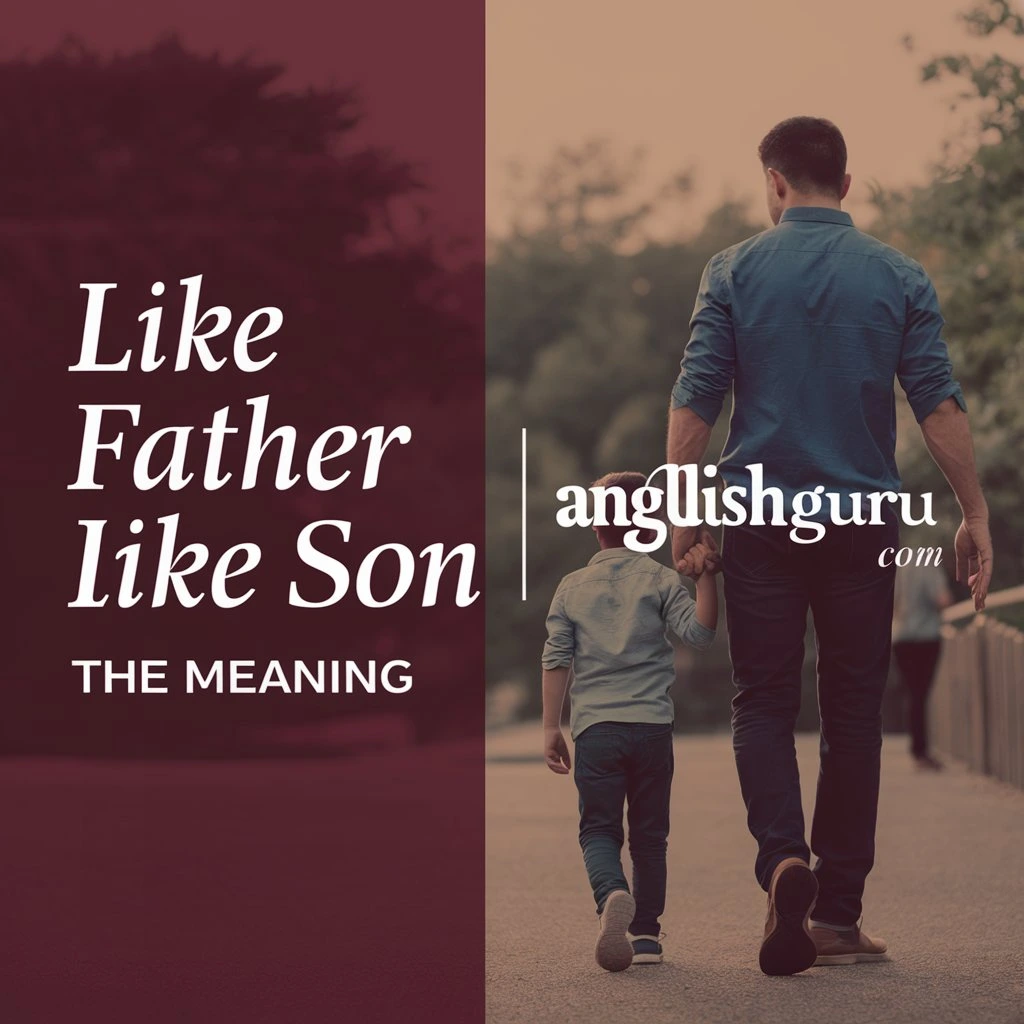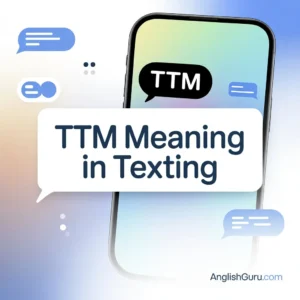Introduction
The phrase “like father, like son” is one of those timeless expressions in English that captures the idea of similarity between a father and his child, especially a son. It often refers to inherited qualities, habits, or behaviors, whether good or bad. However, language is never static—people usually seek alternatives, synonyms, or context-specific phrases to avoid sounding repetitive or overly casual.
In this guide, we’ll dive deep into:
- What “like father, like son” really means.
- Its nuances in different tones—casual, professional, or playful.
- Over 15+ alternatives you can use in speech, writing, or texting.
- How it connects with phrases like “ASL meaning in text” (commonly searched online by learners).
- 11 texting examples you can use right away to express the sentiment naturally.
By the end, you’ll know exactly how to use or replace “like father, like son,” depending on your audience.
What Does “Like Father, Like Son” Mean?
At its core, the phrase expresses that a son resembles his father either in looks, personality, or actions. It often carries a tone of inevitability, as though traits naturally pass down through generations.
Common Nuances of the Phrase:
- Positive admiration – praising shared talents or strengths.
- Example: “Your dad was a brilliant speaker, and you are too—like father, like son.”
- Gentle teasing – pointing out amusing or quirky similarities.
- Example: “He snores just like his dad. Like father, like son!”
- Critical remark – highlighting a negative habit or flaw.
- Example: “He’s always late, just like his father. Like father, like son.”
So,o depending on tone, it can be complimentary, neutral, or lightly critical. That’s why it’s useful to have alternatives—to adjust for different contexts.
15+ Alternatives to “Like Father, Like Son”
Below are more than 15 alternative expressions you can use. Each includes:
- Meaning
- Tone (formal, casual, professional, or playful)
- Example sentences
1. “The Apple Doesn’t Fall Far from the Tree”
Meaning: Suggests children are very similar to their parents.
Tone: Neutral to positive, often playful.
- “You’re so good at storytelling, just like your dad. The apple doesn’t fall far from the tree.”
2. “Cut from the Same Cloth”
Meaning: Describes people who share very similar qualities or behaviors.
Tone: Professional or casual.
- “Both father and son are hardworking—clearly cut from the same cloth.”
3. “Runs in the Family”
Meaning: A trait or habit is shared among family members.
Tone: Neutral, versatile.
- “Your musical talent definitely runs in the family.”
4. “A Chip Off the Old Block”
Meaning: The son resembles the father in character or actions.
Tone: Lighthearted, casual.
- “He’s confident and outgoing—a real chip off the old block.”
5. “Following in His Father’s Footsteps”
- “He became a doctor, following in his father’s footsteps.”
6. “The Resemblance Is Striking”
Meaning: Highlights physical or personality similarity.
Tone: Neutral, polite.
- “The resemblance between them is striking—it’s clear they’re family.”
7. “History Repeats Itself”
Meaning: Events or behaviors recur across generations.
Tone: Neutral, sometimes humorous or ironic.
- “Both started their own businesses at 25. History repeats itself.”
8. “Like Parent, Like Child”
Meaning: A more gender-neutral alternative.
Tone: Casual to neutral.
- “She’s as witty as her mother. Like parent, like child.”
9. “Family Traits Shine Through”
Meaning: Highlights inherited qualities.
Tone: Neutral, polite.
- “His kindness shows that family traits shine through.”
10. “Echoes of His Father”
Meaning: Suggests the son reflects his father’s qualities.
Tone: Poetic, formal.
- “In his leadership style, you can hear echoes of his father.”
11. “Carrying the Torch”
Meaning: Continuing a family legacy.
Tone: Respectful, professional.
- “He’s carrying the torch in the family’s commitment to education.”
12. “In His Father’s Shadow”
Meaning: Living under the influence or legacy of one’s father.
Tone: Neutral, sometimes critical.
- “He always felt in his father’s shadow but made his own mark eventually.”
13. “The Family Stamp”
Meaning: A metaphor for recognizable family traits.
Tone: Casual or semi-formal.
- “That sense of humor definitely bears the family stamp.”
14. “Inherited Both Looks and Talent”
Meaning: Directly points out shared qualities.
Tone: Polite, admiring.
- “He inherited both looks and talent from his father.”
15. “Carved from the Same Stone”
Meaning: Suggests strong, undeniable similarity.
Tone: Formal, poetic.
- “Father and son seem carved from the same stone.”
16. “The Legacy Lives On”
Meaning: Emphasizes continuation of a father’s influence or work.
Tone: Inspirational, professional.
- “With his dedication, the legacy lives on.”
Choosing the Right Alternative
- Formal setting (workplace, speeches): Use phrases like “following in his father’s footsteps,” “carrying the torch,” or “the legacy lives on.”
- Casual conversations: Use “chip off the old block,” “the apple doesn’t fall far from the tree.”
- Playful or teasing tone: Use “history repeats itself,” or “cut from the same cloth.”
- Gender-neutral inclusivity: Try “like parent, like child” or “family traits shine through.”
11 Texting Examples Using These Alternatives
Here are ready-to-use text examples that feel natural and user-friendly:
- “Wow, your son’s sense of humor is just like yours—the apple doesn’t fall far from the tree.”
- “He’s definitely cut from the same cloth as his dad.”
- “Looks like talent really runs in the family.”
- “That’s a true chip off the old block moment!”
- “Proud to see him following in your footsteps.”
- “The resemblance is striking—you can tell they’re related.”
- “Ha! History repeats itself—you did the same thing at his age.”
- “Like parent, like child. Both of you have such great energy.”
- “The kindness he shows proves family traits really shine through.”
- “He’s carrying the torch beautifully—such a strong role model.”
- “It’s amazing how the legacy lives on through him.”
These are short, natural, and perfect for text messages, social media captions, or quick chats.
Final Thoughts
The phrase “like father, like son” is rich with meaning, but it isn’t the only way to capture the idea of family resemblance or inherited qualities. Whether you want to sound formal, professional, poetic, or casual, there are plenty of alternatives to choose from.
By understanding tone and context, you can select the right phrase to show admiration, humor, or gentle critique—without repeating the same cliché. And with the 11 texting examples, you now have practical phrases that can easily fit into everyday conversations.





